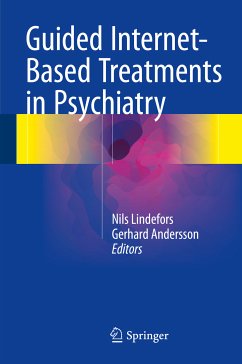This book provides a practically oriented overview of internet-based treatments in psychiatry and mental health care, which represent a relatively new research area and offer a novel clinical approach. The principal focus is on internet-based cognitive behavior therapy, as this is currently the best example of evidence-based internet interventions in the field. Applications are described in a wide range of conditions, including, for example, depression, panic disorder, anxiety disorders, obsessive-compulsive disorder, post-traumatic stress disorder, eating disorders and addictions. Research background, clinical trials and evidence for efficacy and effectiveness are discussed and helpful case descriptions, provided. Information is also included on cost-effectiveness and other relevant aspects of health economics and on new technologies and future challenges. Guided Internet-Based Treatments in Psychiatry will be of great interest for practitioners and researchers alike.
Dieser Download kann aus rechtlichen Gründen nur mit Rechnungsadresse in A, B, BG, CY, CZ, D, DK, EW, E, FIN, F, GR, HR, H, IRL, I, LT, L, LR, M, NL, PL, P, R, S, SLO, SK ausgeliefert werden.









